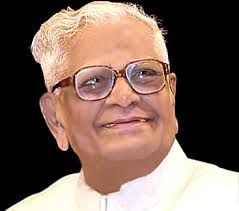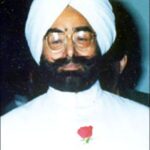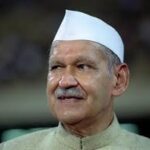Ramaswamy Venkataraman: The Visionary President Who Shaped Modern India
Ramaswamy Venkataraman, often referred to as R. Venkataraman, served as the eighth President of India from 1987 to 1992. A statesman of exceptional intellect and dedication, he played a pivotal role in shaping modern India through his contributions in politics, governance, and international relations. Born on December 4, 1910, in Rajamadam, Tamil Nadu, R. Venkataraman’s life was a testament to discipline, service, and an unwavering commitment to the nation.
Who Was R. Venkataraman?
R. Venkataraman was a lawyer, freedom fighter, and an astute politician who held some of the highest offices in India. His extensive experience in various capacities, including as a Member of Parliament, Cabinet Minister, and Vice President, gave him unique insights into governance and public service.
Early Life and Education: Ramaswamy Venkataraman
- Humble Beginnings: Born into a middle-class Tamil Brahmin family, Venkataraman was deeply influenced by his father’s values of integrity and hard work.
- Education: He graduated with a degree in economics and went on to study law at Madras Law College.
- Legal Career: As a lawyer, he practiced at the Madras High Court and later became a successful barrister in India’s Supreme Court.
Role in India’s Freedom Movement: Ramaswamy Venkataraman
R. Venkataraman was actively involved in the Indian independence movement.
- Civil Disobedience: Inspired by Mahatma Gandhi, he participated in the Quit India Movement and was briefly imprisoned for his nationalist activities.
- Advocate for Freedom: His legal skills were often employed to defend fellow freedom fighters and promote the cause of independence.
Political Career and Contributions: Ramaswamy Venkataraman
1. Early Political Roles:
- R. Venkataraman began his political journey post-independence by joining the Indian National Congress.
- He was instrumental in shaping policies that addressed India’s economic and industrial challenges.
2. Union Minister:
- As a Cabinet Minister under Indira Gandhi, he handled key portfolios, including Defence and Finance.
- During his tenure as Defence Minister, he played a critical role in strengthening India’s armed forces and initiating indigenous defense production.
3. Vice President of India (1984–1987):
- Elected as Vice President, Venkataraman upheld parliamentary decorum and supported legislative reforms.
4. President of India (1987–1992):
- He served as the eighth President during a politically volatile period marked by coalition governments.
- Despite challenges, he maintained the sanctity of the Constitution and acted as a stabilizing force in Indian politics.
Daily Life and Values: Ramaswamy Venkataraman
R. Venkataraman’s disciplined lifestyle was deeply rooted in simplicity and service.
- Routine: He was known for his punctuality, regular reading habits, and a keen interest in classical music and literature.
- Intellectual Pursuits: Venkataraman authored several books on law, governance, and international affairs, showcasing his vast knowledge and analytical skills.
- Commitment to Service: Even after retirement, he remained engaged in activities aimed at societal betterment.
Interesting Facts About Ramaswamy Venkataraman
- He was part of India’s delegation to the United Nations, representing the country on international platforms.
- As Defence Minister, he spearheaded India’s nuclear program and contributed to advancements in defense technology.
- R. Venkataraman received the prestigious “Tamra Patra” for his contributions to the freedom movement.
- He was the architect behind the establishment of several public-sector enterprises, which played a key role in India’s economic growth.
Significance and Legacy: Ramaswamy Venkataraman
R. Venkataraman’s contributions to India’s political and economic landscape remain significant.
- Strengthening Democracy: His tenure as President ensured the smooth functioning of democracy during a turbulent time.
- Economic Reforms: As Finance Minister, he laid the groundwork for economic liberalization, which later transformed India.
- Defense Modernization: His efforts in enhancing India’s defense capabilities contributed to the nation’s security and self-reliance.
- Inspirational Leadership: His life exemplified discipline, dedication, and an unwavering commitment to the nation’s progress.
FAQs About Ramaswamy Venkataraman
Q1. What is R. Venkataraman best known for?
He is best known for his tenure as the eighth President of India and his contributions as Defence and Finance Minister.
Q2. How did R. Venkataraman impact India’s defense sector?
As Defence Minister, he initiated indigenous defense production and bolstered India’s nuclear program.
Q3. What were R. Venkataraman’s values as a leader?
He valued integrity, discipline, and public service, emphasizing the importance of upholding constitutional principles.
Observance and Relevance Today: Ramaswamy Venkataraman
Although there is no specific day dedicated to R. Venkataraman, his contributions are celebrated through institutions, policies, and initiatives inspired by his vision for a progressive India.
Ramaswamy Venkataraman legacy is a reminder of the values that form the cornerstone of a progressive society—integrity, service, and a commitment to the greater good. His life continues to inspire leaders and citizens to contribute meaningfully to the nation’s development.










